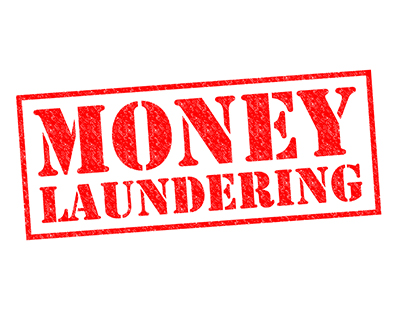However, no decision has been taken and it is thought the proposals would require legislation as they currently undermine long-held property rights.
The FT quotes “a Whitehall official” saying that civil servants are examining what steps would be needed to hand powers to ministers to “swiftly acquire specific land and property in the UK owned by a sanctioned person, without the need to pay them compensation”.
Meanwhile the agents’ body Propertymark has given its backing to the government’s proposal to introduce a Register of Overseas Entities to stop foreign criminals using UK property - mostly in London - to launder money.
The register is one of the provisions in the Economic Crime (Transparency and Enforcement) Bill, accelerated in its procedures through Parliament by the Russian invasion of Ukraine.
The rules will require anonymous foreign owners of UK property to reveal their real identities to ensure criminals cannot hide behind secretive chains of shell companies. Those who do not comply will face sanctions including restrictions on registering or disposing the title of the land, and possibly imprisonment for up to five years.
As we reported on Estate Agent Today earlier in the week, the register will be applied retrospectively to property bought up to 20 years ago in England and Wales and up to just over seven years in Scotland.
Propertymark’s head of policy and campaigns Timothy Douglas says: “We called on the UK government to introduce a public register of overseas entities owning property in the UK back in 2018 and it is high time that legislation has been brought forward.
“Despite repeated promises, including being mentioned in the December 2019 Queen’s Speech, the UK government failed to deliver.
“But recent events serve as a reminder that property is a high-risk sector for money laundering because any foreign company can buy property in the UK without having a presence in the country.
“Criminal funds can be concealed and made to look legitimate through an untraceable ‘company’ and subsequently the purchasing of property.
“When agents try to determine the true, or ‘beneficial’ owners, they find only documents listing shell companies.
“To maintain integrity in our housing market it is vital to know who the ultimate owner of a property is and it is imperative that the register is set up as soon as possible.
“The longer we wait for the register, the longer corrupt individuals will be able to use the UK property market to hide their wealth.”
Business Secretary Kwasi Kwarteng says: “The new register will shine a light on who owns what in the UK so we can flush out the oligarchs, criminals and kleptocrats who think they can use UK property to hide their illicitly obtained wealth.”
The Bill also contains powers to increase the use of Unexplained Wealth Orders.
Under the Bill’s measures, those who hold property in the UK in a trust will be brought within scope and the definition of an asset’s ‘holder’ will also be expanded to ensure individuals can’t hide behind opaque shell companies and foundations.
The reforms will also remove key barriers to the use of UWOs by increasing time available to law enforcement to review material provided in response to a UWO and reforming cost rules to protect law enforcement agencies from incurring substantial legal costs if they bring a reasonable case that is ultimately unsuccessful.
Prime Minister Boris Johnson comments: “There is no place for dirty money in the UK. We are going faster and harder to tear back the façade that those supporting Putin’s campaign of destruction have been hiding behind for so long. Those backing Putin have been put on notice: there will be nowhere to hide your ill-gotten gains.”













.png)


.png)



Join the conversation
Jump to latest comment and add your reply
As far as I can see whose going to object. I remember it was only a few years ago that the NCA had the audacity to preach to a room full of hundreds of normal estate agents at an NAEA Annual Conference about Money Laundering! The speaker was warning us specifically against Russian buyers. All they needed was a register. Instead it was just a tick box to outsource the blame to you and I and our businesses. Anyone ever thought that the best place to launder huge sums might be a football club?
It's a shame that it had to be due to the Ukrainian invasion, why has it been allowed to go on for so long? Just how many properties in the UK are owned this way?
Please login to comment